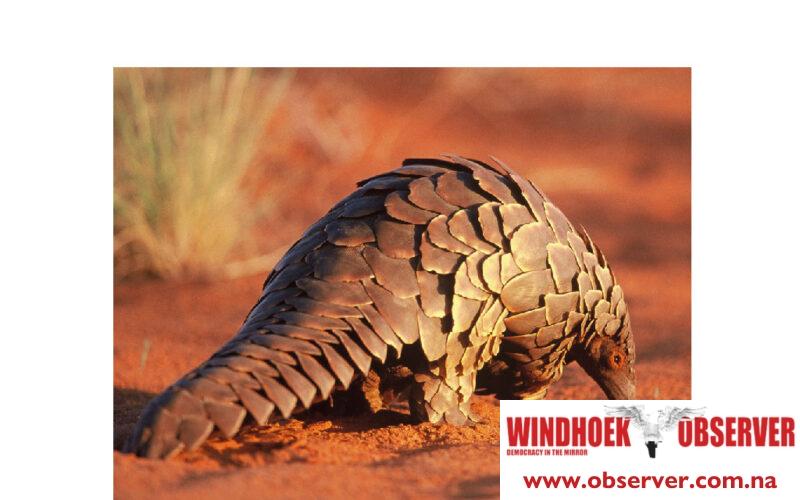Stefanus Nashama
The Ministry of Environment, Forestry, and Tourism has raised alarm over the serious threat facing pangolins in Namibia.
According to Romeo Muyunda, the Ministry’s spokesperson, there has been a notable increase in pangolin trafficking cases from September to November this year, leading to a significant concern for the survival of this species.
Muyunda disclosed that during this period, authorities have confiscated a total of 18 pangolin skins, 12 live pangolins, and 146 pangolin scales.
This has resulted in 23 registered cases and the apprehension of 38 suspects. Remarkably, these figures surpass the combined number of cases related to elephant and rhino trafficking for the same period.
These pangolin trafficking cases have been predominantly reported in the northern regions of the country, with Kavango West having the highest number of registered cases at six.
Kavango East, Ohangwena, Oshana, and Zambezi regions each recorded three cases, while the central regions collectively registered four cases, with Kunene having only one reported case.
Muyunda issued a stern warning to the public about these illegal activities. He highlighted that the heaviest punishment for pangolin trafficking or possession of pangolin parts is nine years of direct imprisonment or a fine of N$800,000.
Possession of a pangolin or its parts carries the same maximum sentence as that for rhino horn, which is up to 15 years imprisonment and a fine of up to N$15,000,000.
Furthermore, the trafficking or sale of pangolins carries a sentence of up to 25 years imprisonment and a fine of N$25,000,000.
To provide context to the escalating pangolin trafficking problem, Muyunda revealed that before September, there were only six live pangolins recovered and 19 pangolin skins confiscated between January and August of the same year.
Pangolins are protected under the Nature Conservation Ordinance 4 of 1975, as amended by Act 3 of 2017, and the Controlled Wildlife Trade and Products Act 9 of 2008, as amended by Act 6 of 2017.
The Ministry emphasized that the trafficking of wildlife is a grave offence, and offenders will be arrested and prosecuted accordingly.
The ministry also strongly encouraged the public to report any information related to illegal wildlife crime to the relevant authorities.
Assurances were given that individuals reporting such cases would remain anonymous to protect their identities.




